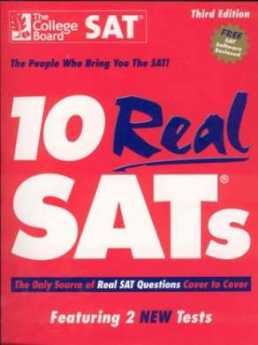0 Volumes
No volumes are associated with this topic
Apologia Pro Vita Sua
With apologies to John Henry Newman.
The Link Between Prose and Poetry
When I was young, I liked poetry a lot, but never thought much about what I was reading. I majored in English when I went to college. Poetry was about romance, love and sex, seemingly vital subjects, and short ones. But Academia acquainted me with Byron, Spenser and the like, who wrote eight hundred page volumes of poetry and spoiled it. For people born with a talent, poetry came pouring out. So I satisfied premedical requirements, and never looked back.
After sixty years of happily practicing medicine, I returned to prose. Writing five hundred pages of a book about Health Savings Accounts, I had to shorten to two hundred, for anyone to read it willingly. After chopping hundreds of pages, I had to add some, to explain away the choppiness. And so more pruning, until what was wrong emerged: the idea comes at the end. No one but a graduate student reads that kind of book if it's long. Book reviews help the reader overcome the flaw, but it's a flaw. So more pruning was needed: no examples, no history--just the bare bones idea. And that's where poetry re-emerged. Every word must be essential. The book is a poem, not the chapters, or most of the words.
So what about Byron? He was apparently born prolix. or more likely self-taught. Just as I learned in college how to fill a blue book with words, and later in life went back to remove most of them. I had started writing answers before I fully understood the questions, and then doubled back without erasing. Those are bad habits. Poetry is better, but romance is a trivial part of it. Every prose piece contains a poem, trying to get out.
Advanced Placement Gains Attackers and Defenders
An abridged extract of what

|
| Naomi Riley |
Naomi Schaefer Riley writes in the October 6, 2006 Wall Street Journal, follows:
"... The rat race complaint is that AP courses put a strain on students-too many facts to memorize, too much reading. And teachers complain, too. They say that AP courses force them to teach to test.. .
"Conceived in the early 1950's by educators from three prep schools (Andover, Exeter, Lawrenceville) and three universities (Harvard, Princeton, Yale),

|
| SAT's |
the AP curricula demand that students acquire real knowledge. Unlike the SAT's which measure mental aptitude, the AP tests ask students hard questions on the history exam require students to place quotations and documents in their correct context and to identify events, dates, historical figures, and ideas....
"Why? Because college increasingly offers a crazed social experience at the expense of rigorous study. But high school does better: It is often the last time that students are forced to learn something...."
Ms. Riley goes on to imply that colleges have deteriorated into little more than binge drinking hide-outs. Since I am 62 years away from personal observation of the college scene, I can't comment or even know for certain whether things have changed much in this respect.
But on the topic of resistance to Advanced Placement, Ms. Riley explains enough to justify comment. The SAT revolution, which took place at the same time and much the same place, effectively converts the old college entrance based on genetic probabilities into the new college entrance based on mental aptitude. Since raw mental aptitude seems to be in oversupply, the final decisions are winnowed by extra-curricular success. It would appear to me that the extra-curricular success industry is threatened by proofs of academic achievement. And more importantly, since grade inflation has destroyed the value of high school transcripts, the AP courses serve as a surrogate for effective nerdiness and bookishness. In other words, the AP tests are a threat to the entitlements created by the SAT, one of which is grade inflation.
If grade inflation is under attack, that puts more pressure on high school teachers to teach, school districts to raise their salaries, and taxpayers to pay. Before that happens, there will be pressure to cut the cost of sports and other extracurricular expenses.

|
| Bill Gates |
And, come to think of it, if more nerds are admitted to prestige colleges, perhaps their social inadequacies will reduce college socializing that now appears to alarm, Ms. Riley. For proof of that trade-off, I enclose a photograph of some overachievers of 1978, two of whom dropped out of Harvard because it was unchallenging. Mr. Gates is lower left, Mr. Allen lower right.
2 Blogs
The Link Between Prose and Poetry
New blog 2016-01-14 19:28:10 description
Advanced Placement Gains Attackers and Defenders
 College admission is so competitive it creates vested interests. Everything is questioned, even the value of college itself.
College admission is so competitive it creates vested interests. Everything is questioned, even the value of college itself.